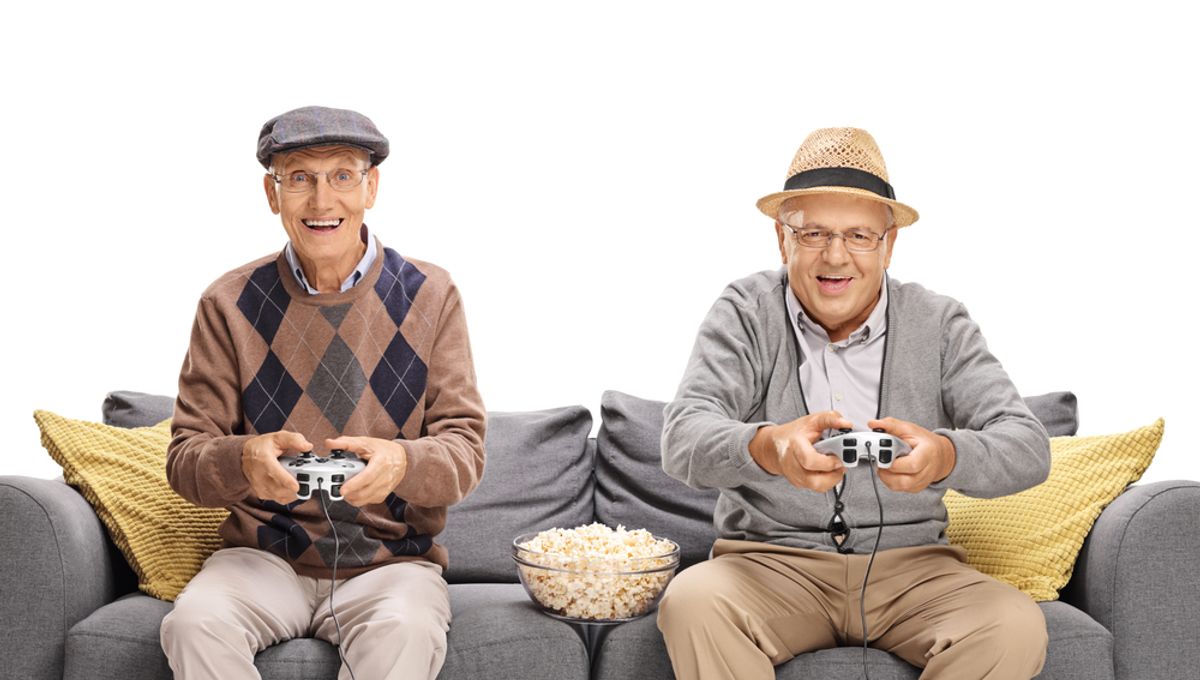
A video game, created in collaboration with former Grateful Dead drummer Mickey Hart, has been shown to improve the short-term memory of older adults. Developed by the University of California San Francisco’s Neuroscape Center, the game challenges players to drum out a rhythm on a tablet and engages key brain regions associated with musical performance.
Describing the game’s cognition-boosting effects in a new study, researchers explain how they recruited 47 adults aged 60 to 79 to take part in an eight-week experiment. Half of these participants played “Rhythmicity” for 20 minutes a day, five days a week, while the other half spent the same amount of time playing a word search game.
As beginners, gamers were provided with visual cues to help them remember a particular drumming pattern. However, over time these cues were gradually removed, requiring participants to engage their working memory and complete the pattern unassisted.
When the eight weeks were up, participants from both groups were presented with a face recognition task while the researchers recorded their brain activity using electroencephalography (EEG). “Results showed that only musical rhythm training improved face memory, which was associated with increased activity in the superior parietal region of the brain when encoding and maintaining faces,” write the study authors.
“Thus, musical rhythm training can improve face memory by facilitating how the brain encodes and maintains memories.”
When analyzing participants’ EEG readings, the researchers looked for specific signals associated with three distinct facets of cognition. Overall, they saw no increase in the domains of sensory processing or selective attention but observed a noticeable enhancement in working memory.
“That memory improved at all was amazing,” said Theodore Zanto, director of the Neuroscience Division at Neuroscape, in a statement. “There is a very strong memory training component to this, and it generalized to other forms of memory.”
The fact that improvements in short-term memory activity were localized to the superior parietal lobule is also significant since this brain region is implicated in the visual aspects of musical performance – such as sight-reading sheet music – as well as other non-musical tasks. Previous studies have shown that trained musicians often have more gray matter in this key brain structure than non-musicians.
In addition to developing Rhythmicity, the Neuroscape Center has created a range of other video games that are designed to enhance different areas of cognition in older adults. For instance, a game called Neuroracer has been shown to help aging individuals improve their multitasking ability, while a virtual reality spatial navigation game called Labyrinth boosts long-term memory.
“These are all targeting cognitive control, an ability that is deficient in older adults and that is critical for their quality of life,” said Neuroscape founder and executive director Adam Gazzaley. “These games all have the same underlying adaptive algorithms and approach, but they are using very, very different types of activity. And in all of them we show that you can improve cognitive abilities in this population.”
The study was published in the Proceedings of the National Academy of Sciences.
Source Link: This Drumming Video Game Boosts Working Memory In Older Adults